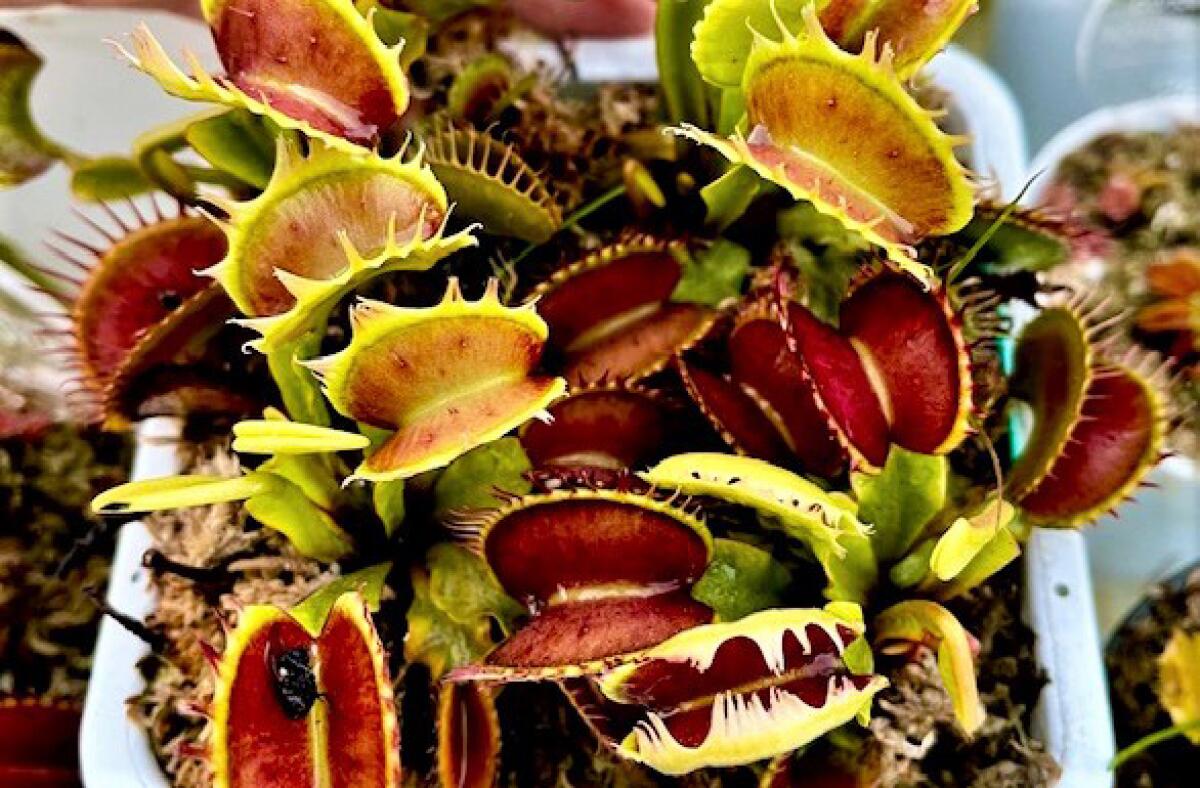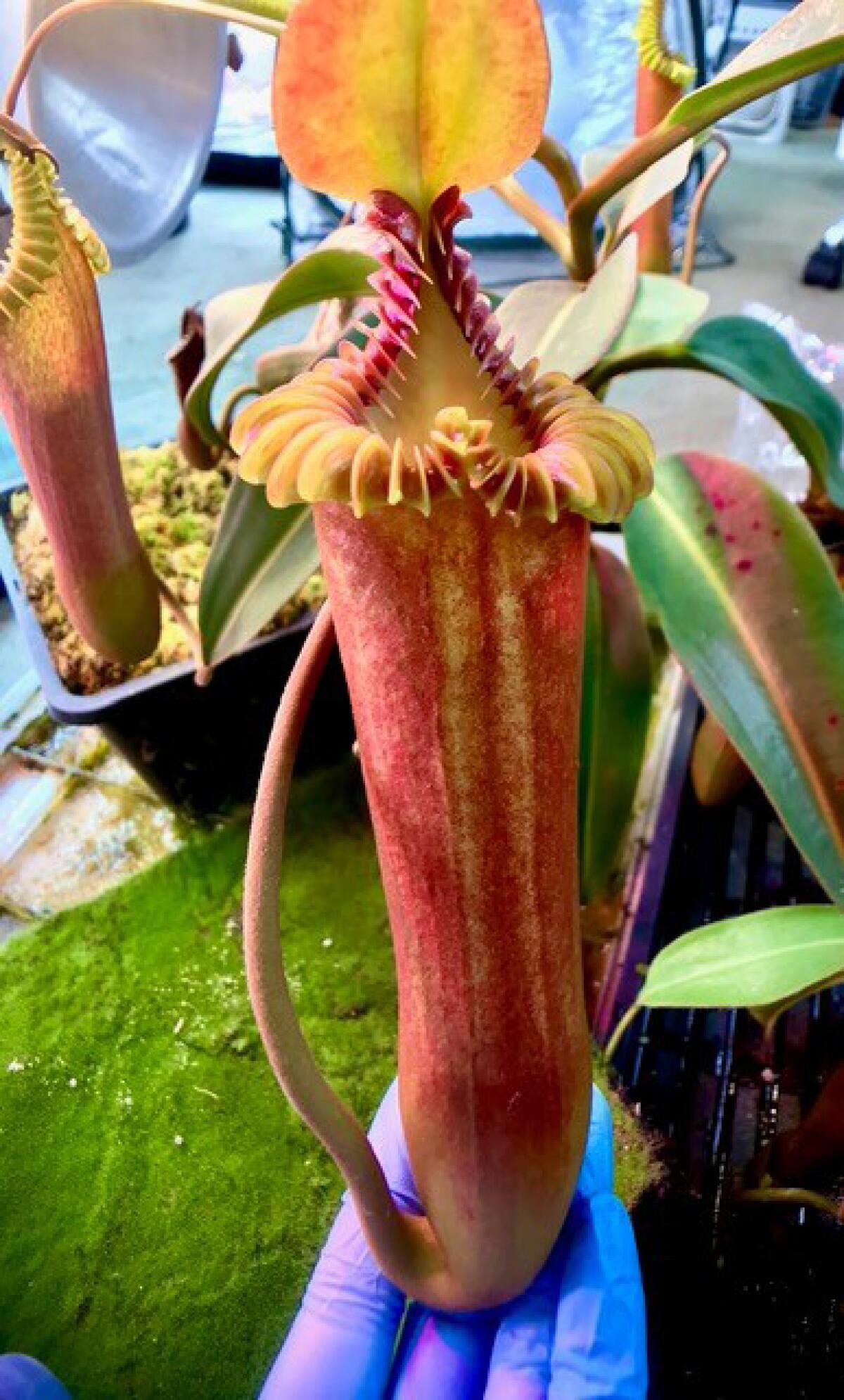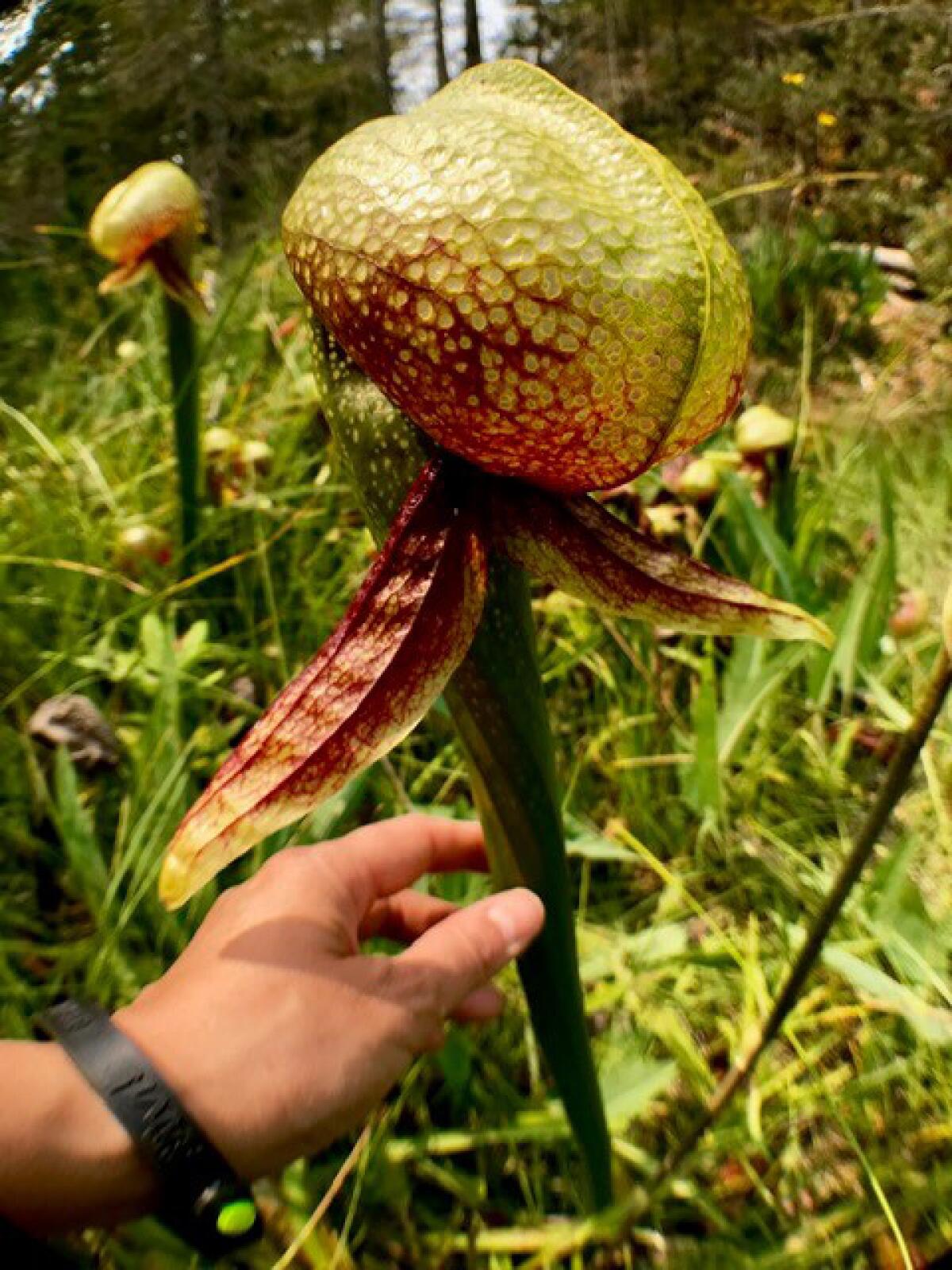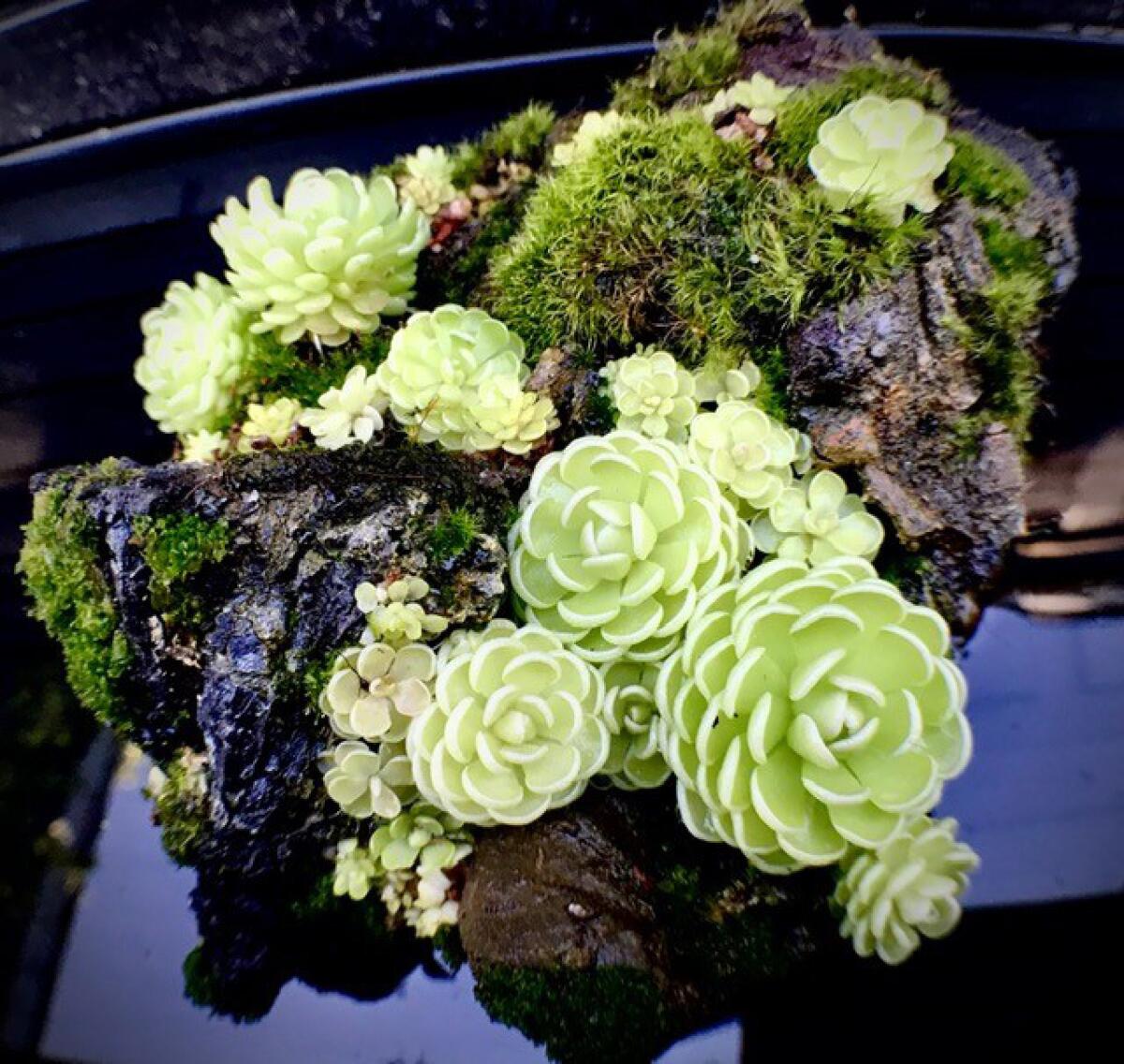Feed me, Seymour! Meat-eating plants on display this weekend at Sherman Gardens

Will a Venus flytrap feast on a human finger? How quickly can a pitcher plant pulverize its insect prey? Is the plant in “Little Shop of Horrors” completely made up or based on actual species found in nature?
Those questions, and more, can be answered this weekend as the nonprofit Southern California Carnivorous Plant Enthusiasts hosts a two-day Father’s Day Weekend Celebration, Exhibition and Sale at the Sherman Library and Gardens in Newport Beach.
For the cost of garden admission, visitors can learn the secrets of growing, caring for and exhibiting carnivorous plants, while hobbyists and experts from throughout the region display unique and eye-catching specimens from more than 12 different genera around the world.
Maggie Chen, secretary and co-founder of SCCPE (pronounced “skippy”), said the inaugural show aims to introduce the wider public to the fascinating world of carnivorous plants, which evolved to adapt to nutrient-poor growing environments and other challenges through carnivory.

“They’re not exactly like a plant, and they’re not like an animal — they’re kind of in-between,” said Chen, who got her first Venus flytrap at Home Depot eight years ago and never looked back.
Today, she owns roughly 1,000 plants and shows them at area competitions.
“It’s not something that’s merely a passing fancy,” Chen said of the hobby. “There are so many fascinating things and new things to learn about this genus or that genus, you never stop learning.”
In addition to the show and vendor booths, the weekend event will feature one expert talk each day. On Saturday at 11:30 a.m., SCCPE Vice President Adam Tilden will provide an introduction to carnivorous plants, exploring what makes them unique as well as some common characteristics they share.

David Fefferman, of carnivorousplantresource.com, will speak at 11:30 a.m. Sunday about the basics of caring for carnivorous plants, sharing expert tips on watering, soil, light and dormancy. Both talks are free with admission.
Fun activities will teach kids more about plant species, and young attendees can take home their own sundew plant and watch up close as the sticky leaves lure, capture and digest their prey.
Admission to the garden costs $5 and is free for members and children under 3.
SCCPE’s Father’s Day Weekend Celebration Exhibition and Sale takes place Saturday and Sunday, from 10:30 a.m. to 4 p.m. at Sherman Library and Gardens, 2647 E. Coast Highway, in Newport Beach. For more, visit sccpe.org or thesherman.org.

All the latest on Orange County from Orange County.
Get our free TimesOC newsletter.
You may occasionally receive promotional content from the Daily Pilot.




